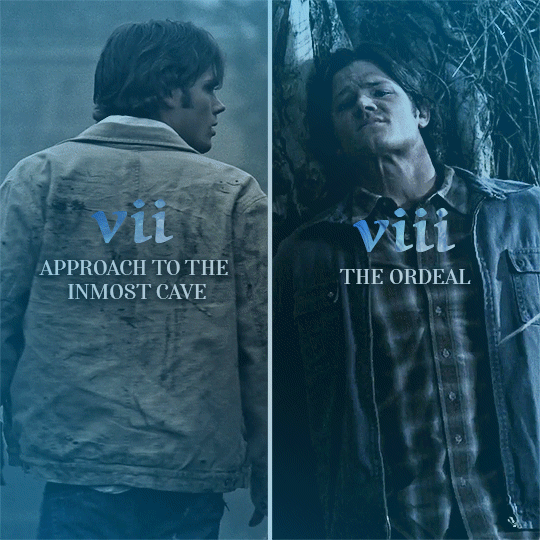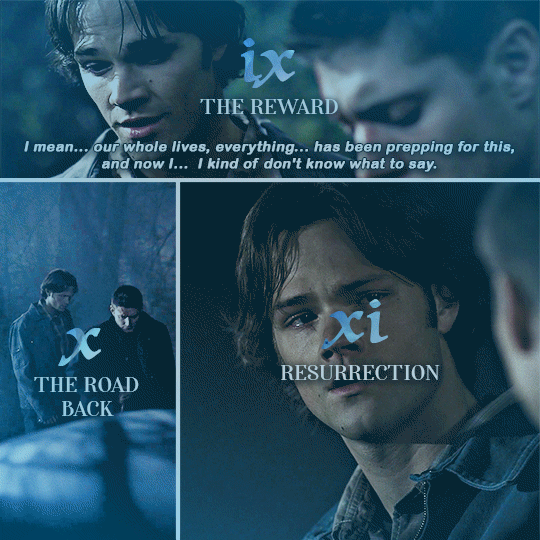#so many links in the caption lol but further reading and inspiration if anyone is interested!
Text







sam winchester + christopher vogler's the hero’s journey in seasons 1 & 2 [in/sp]
Sam is that very classic Joseph Campbell [hero] with the prophecy and all that. - Eric Kripke
#supernatural#spn#sam winchester#spnedit#supernaturaledit#samwinchesteredit#spnsamwinchester#*#so many links in the caption lol but further reading and inspiration if anyone is interested!
374 notes
·
View notes
Text
Sumayyah Talibah
Sumayyah Talibah, 37, from Michigan, in the USA – is a poet and jewellery artisan, who has chosen to write a poem for ASLI on discrimination in the USA. We are honoured to have Sumayyah’s voice in our 4th issue on discrimination, privilege and stigmatisation.
Here is our interview:
Can you tell us a little about yourself?
I am a Black woman from Detroit, Michigan who is an artist, wife, and mother.
What is your artistic/creative background?
I started writing at a very young age, completing my first “book” by age 8. I switched to poetry for years. I am also completely self-taught in the art of bead and wire jewellery.
What motivated you to deal with your chosen submission subject?
The current political climate (in the United States), while not new, is appalling and “in your face” following the campaign and election of our current Head of State. The things I personally experience, and the documented experiences of others, makes me wary, afraid, and angry.
danger
hands up
laid down
car stalled
traffic stop
cigarette in my hand
leather wallet in my pants
piece of fabric on my hair
danger danger everywhere
can’t walk
can’t jog
can’t pray
can’t play
can’t get enough clean water
to get me through the day
i’m a thug bringing terror
i’m a welfare queen
i’m the living legacy
of the wished to be forgotten
memory of misdeeds
school to prison pipeline
major sentence
lesser crime
handcuffed
locked in
inner city sanctioning
i’m a long term prisoner
of your blasted lies
ripping right on through
your rotted broken dream disguise
my blood is flowing in the streets
don’t you care?
danger danger everywhere
–
Sumayyah Talibah © 2017 January 24
What is your process when creating?
I listen to a lot of music, but so often, my art springs up, fully formed, from a random thought or news article. Typically, I just turn on a music streaming site, pick a station/playlist, then pick up my pen, my [jewellery] tools, or open a blank document on my computer, and let it flow. Also, tea. Tea helps.
Who are you influenced by within your artistic discipline?
For poetry, my biggest influences came from poets like Nikki Giovanni, Sonia Sanchez, and Maya Angelou.
Who inspires you in general?
My ancestors, and those on the front lines in the struggle today.
What causes and world issues are you passionate about, campaign for, volunteer for…?
I am all for the advancement of marginalised peoples. I don’t follow/campaign for any specific organisations.
What do the statements “art saves lives” and “art creates change” mean to you?
So much art is borne from struggle, from pain. I believe that art is both an outlet of inner turmoil and a medium of processing the world at large. Artists are the forerunners of revolutions because we put into emotions into words and pictures and connect people’s hearts.
Have your artistic and creative outlets saved your life in anyway and do you think your message within them could help create change in the world?
My art, specifically my poetry, has saved my life for sure. I was once asked “why do you write?” and my answer was/still is “to clear the noise in my head.” I can only hope that my words will reach the people who need them.
What are your present and future goals for your art?
Having a poem in an international publication is a start, lol. I hope to write more, to create more works of poetry, to return to writing speculative fiction, hopefully in the form of a completed novel, and to make jewellery that is high is demand.
Have you experienced any form of discrimination; and if so what was it based on and how did you deal with this?
I have experienced discrimination for being short, for being fat, for being Black, for being a (once) practising Muslim, for being disabled.. I internalise a lot, especially as an adult. When I was younger, sometimes I’d let my fists speak for me. As a teen/young woman, I wrote heavily.
What are your opinions on what causes discrimination?
Fear. Fear causes hate. People fear what they do not understand, and what it possibly says about them.
What do you do to actively stand against discrimination and have you ever had to intervene as a witness to it?
I serve as a witness and sometime mouthpiece. I offer resources for education. The biggest thing I do is teach my children how to not be a**holes.
What are your opinions on labels and stereotypes?
Stereotypes come from somewhere, but are often just propaganda. Labels are technically a necessity for identification, as they help folks find like-minded people. In an ideal world, none of it would matter.
What are your opinions on national identity and in your opinion does nationalism create or deter discrimination?
Nationalism forces conformity, in my opinion, because a large part of it ignores intersectionality. It causes internal conflict when opinions and lived experiences don’t match up.
What social privileges do you have? For example: are you white, able bodied/minded, a man, rich, heterosexual, thin… etc.
Hahahaha. Sorry. I’m pretty much the opposite of what most people would consider socially privileged. I’m a short, fat, Black, non-Christian, disabled woman. I have a few passing privileges, but I correct those pretty quickly.
What social privileges of others around you have you experienced and how did this privilege of others affect you?
I’ve watched people receive faster, better service, such as in shops and restaurants. I’ve been reprimanded while watching other people walk away without censure.
How does social privilege affect our world in your opinion?
Our world is largely based on money being the great equaliser, though that isn’t entirely true, because rich people of colour still lose out against their white counterparts.
Have you ever denied your own privilege due to feelings of guilt or misunderstanding?
I have little enough of it that when next to someone who is more marginalised than myself, I do feel guilty for having more. However, that gives me the chance to help someone else.
Do you feel social privilege should be taught at school and if so why and how young?
Social privilege is taught at school, no matter what anyone thinks. It may not be an official subject in the curriculum, but children DO learn it, and quickly. Do I think schools should combat the hierarchy and teach kids how not to be a**holes? Yeah, that’d be great, but it always starts at home.
Have you ever experienced social stigmatisation and if so what was it based on and how did you deal with this?
I was largely a loner in my more formative years so I don’t know. I’ve always had friends. I was never part of the “in” crowd, but I didn’t want to be, so…
Have you ever contributed to the stigmatisation of any individual or group, and if so were you aware you did this and how did you deal with this aftermath?
When we’re young, we do silly things to follow the crowd. I, for the most part, didn’t. I worked with everyone, I talked to everyone. I’ve been known to smile at the people everybody hated.
What are your opinions on political powers and world leaders using stigmatisation against certain groups to further their own agendas, such as with Muslims, Black people, LGBTQ individuals, mentally ill and disabled people?
If there was space for you to hear me rage scream, I’d do it. I think it’s ridiculous. Intersectionality is a thing. Using your examples, I personally know Black Muslims who are LGBTQ and disabled, so.. yeah. It’s ridiculous. Just stop. We’re not going away.
Do you support or take part in any anti-stigma organisations or charities and if so which ones and why?
I share lots of articles and fundraisers and have probably contributed to some. I honestly don’t keep track of the organisations I follow because there are so many. I’m not exactly a card-carrying member of anything these days, so maybe that’s a “no”?
In your own words please tell us how you feel the arts and creativity can further help to empower, communicate and educate people with regards to discrimination, privilege and stigmatisation?
Artists translate emotion into words, image, sound, movement. We tell stories. We make people feel things. We are the ones people turn to when they hurt, when they burn, when they rage. They read our poems, sing our songs, make banners and t-shirts of our photos and paintings. We connect people’s hearts.
If you would like to know more about Sumayyah and support her work or purchase some of her beautiful jewellery – please follow these links:
Website – sumayyahsaidso.com
Instagram – instagram.com/sumayyahsaidso
Facebook – facebook.com/sumayyahsaidso
To purchase Jewellery by Sumayyah Talibah please visit her shop by following this link:
Shop
Jewellery by Sumayyah Talibah
Jewellery by Sumayyah Talibah
Jewellery by Sumayyah Talibah
Jewellery by Sumayyah Talibah
Jewellery by Sumayyah Talibah
If you have any feedback on this article please fill in the contact form below:
[contact-form] Sumayyah Talibah uses poetry to stand against discrimination in today’s political climate Sumayyah Talibah, 37, from Michigan, in the USA - is a poet and jewellery artisan, who has chosen to write a poem for ASLI on discrimination in the USA.
#artisan#craft#Cultural Stigma#discrimination#discrimination in the USA#Fat Stigma#female poet#female poetry#intersectionality#Issue 4 - Discrimination Privilege and stigmatisation#jewellery maker#Maya Angelou#Nikki Giovanni#poet#Poetry#Privilege#Sonia Sanchez#Stigma#Stigmatisation#Sumayyah Talibah#USA#woman of colour#Women of Color with Disabilities#women of colour
0 notes